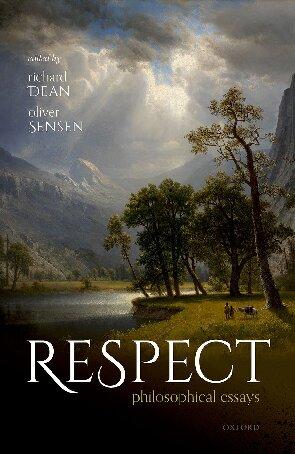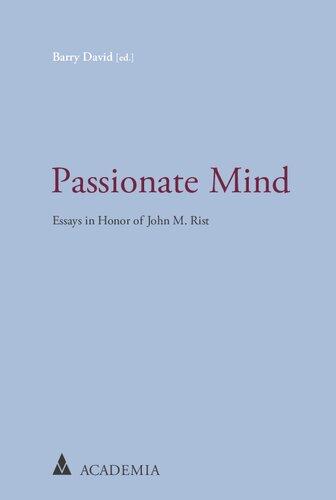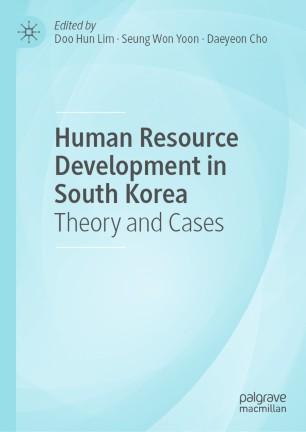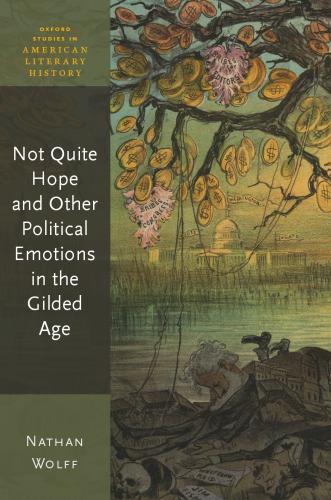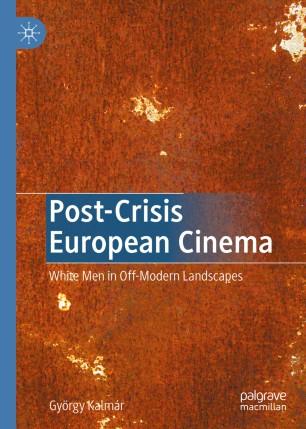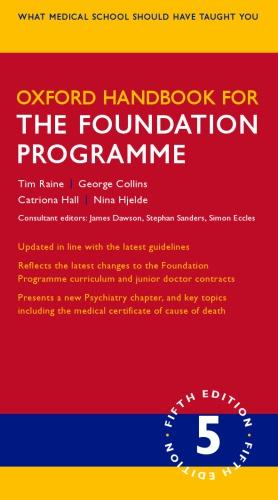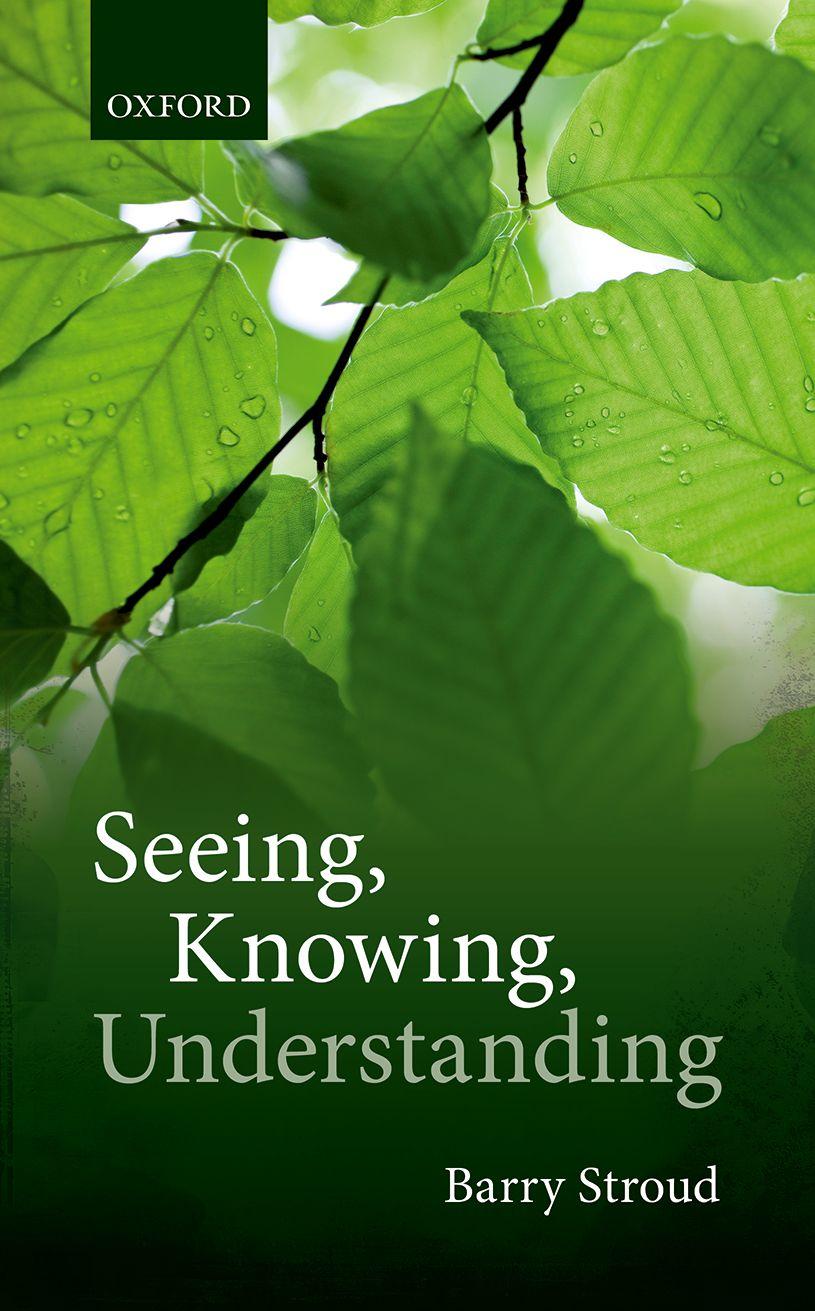Seeing,Knowing, Understanding
PhilosophicalEssays
BarryStroud
GreatClarendonStreet,Oxford,OX26DP, UnitedKingdom
OxfordUniversityPressisadepartmentoftheUniversityofOxford. ItfurtherstheUniversity’sobjectiveofexcellenceinresearch,scholarship, andeducationbypublishingworldwide.Oxfordisaregisteredtrademarkof OxfordUniversityPressintheUKandincertainothercountries ©inthisvolumeBarryStroud2018
Themoralrightsoftheauthorhavebeenasserted
FirstEditionpublishedin2018
Impression:1
Allrightsreserved.Nopartofthispublicationmaybereproduced,storedin aretrievalsystem,ortransmitted,inanyformorbyanymeans,withoutthe priorpermissioninwritingofOxfordUniversityPress,orasexpresslypermitted bylaw,bylicenceorundertermsagreedwiththeappropriatereprographics rightsorganization.Enquiriesconcerningreproductionoutsidethescopeofthe aboveshouldbesenttotheRightsDepartment,OxfordUniversityPress,atthe addressabove
Youmustnotcirculatethisworkinanyotherform andyoumustimposethissameconditiononanyacquirer
PublishedintheUnitedStatesofAmericabyOxfordUniversityPress 198MadisonAvenue,NewYork,NY10016,UnitedStatesofAmerica
BritishLibraryCataloguinginPublicationData
Dataavailable
LibraryofCongressControlNumber:2017961723
ISBN978–0–19–880975–3
Printedandboundby CPIGroup(UK)Ltd,Croydon,CR04YY
Acknowledgements
Theessaysinthisvolumewereoriginallypublishedasfollows:
‘WhatisPhilosophy?’ inC.P.RaglandandS.Heidt(eds), WhatIs Philosophy? (YaleUniversityPress2001),pp.25–46.
‘ThePursuitofPhilosophy’,TheDeweyLecture, Proceedingsand AddressesoftheAmericanPhilosophicalAssociation (2008),pp.117–29.
‘TheEpistemologicalPromiseofExternalism’ inR.Schantz(ed.), The ExternalistChallenge:NewStudiesonCognitionandIntentionality (DeGruyter2005),pp.181 –91.
‘EpistemologicalSelf-Profile’ inJ.Dancy,E.Sosa,M.Steup(eds), ACompaniontoEpistemology,secondedition(Blackwell2010),pp.190–4.
‘ExplainingPerceptualKnowledge:ReplytoQuassimCassam’ , EuropeanJournalofPhilosophy (2009),590–6.
‘ScepticismandtheSenses’ , EuropeanJournalofPhilosophy (2009), pp.559–70.
‘SeeingWhatisSo’ inJ.Roessler,N.Eilan,H.Lerman(eds), Perception,Causation,andObjectivity:IssuesinPhilosophyandPsychology (OxfordUniversityPress2011),pp.92–102.
‘PerceptualKnowledgeandthePrimacyofJudgment’ , Journalofthe AmericanPhilosophicalAssociation (2015),pp.385–95.
‘Judgement,Self-Consciousness,Idealism’ inD.Emundts(ed.), Self, World,andArt:MetaphysicalTopicsinKantandHegel (DeGruyter 2013),pp.37–46.
‘DoingSomethingIntentionallyandKnowingThatYouAreDoingIt’ , CanadianJournalofPhilosophy (March2013),pp.1–12.
‘FeelingsandtheAscriptionofFeelings’ , Teorema (January2011) pp.25–33.
‘Kant’ s “TranscendentalDeduction”’ inJ.O’Shea(ed.), Kant’ s CritiqueofPureReason:ACriticalGuide (CambridgeUniversityPress 2017),pp.106–19.
‘UnmaskingandDispositionalism’ , PhilosophyandPhenomenological Research (2004),pp.202–12.
‘ConceptsofColourandLimitsofUnderstanding’ inF.Gierlinger& S.Riegelnik(eds), WittgensteinonColor (DeGruyter2014),pp.105–13.
‘WaysofMeaningandKnowingMoralRealities’ inG.OrtizMillány J.CruzParcero(eds), Lenguaje,MenteyMoralidad:EnsayosenhomenajeaMarkPlatts (InstitutodeInvestigacionesFilosóficas,Mexico 2015).
‘MeaningandUnderstanding’ inO.KuuselaandM.McGinn(eds), TheOxfordHandbooktoWittgenstein (OxfordUniversityPress2011), pp.294–310.
‘DavidsonandWittgensteinonMeaningandUnderstanding’ in C.Verheggen(ed.), WittgensteinandDavidsononThought,Language, andAction (CambridgeUniversityPress2017),pp.123–38.
Introduction
Iassembleherenineteenrecentessaysofmineondistinctbutinterconnectedsubjects.Allbuttwooftheessayshavebeenpublishedbefore; theyappearherewiththepermissionoftheiroriginalpublishers.They remainintheforminwhichtheywerepublished,despitesomeoverlaps betweenthem,anddespitetheurgetoimprovetheminwaysthatnow seemobvious.
The firsttwoessaysstandsomewhatapartfromtheothers,atleastin genreandscope. “WhatisPhilosophy?” waspresentedataconferenceon thatquestionatYaleUniversityandwaspublishedinC.P.Raglandand S.Heidt(ed.), WhatIsPhilosophy?,YaleUniversityPress2001.Some contributorstothatconferencetriedtoanswerthatimpossiblequestion; othersmoreorlessignoredit.Iremainedwithinsightofthequestion, tryingtoexplainwhatmakesitsounmanageable,probablysatisfyingno one,includingmyself.
“ThePursuitofPhilosophy” isTheDeweyLectureIwasinvitedtogive tothePacificDivisionoftheAmericanPhilosophicalAssociationin 2008.Itwaspublishedinthe ProceedingsandAddressesoftheAmerican PhilosophicalAssociation inthatyear.TheDeweyLectureismeanttobe autobiographical,sketchingthesignificantoutlinesofaphilosophical career.AlthoughIbelievetheessayisatrueaccountofthelifeit describes,Ihavefoundnoacademicpersonbornafterabout1950who canbelieveforamomentthatphilosophicallifewaseverreallylikethat.
Essaysthreethroughninepursuequestionsaboutthepossibilityand explanationofhumanknowledge.In TheSignificanceofPhilosophical Scepticism of1984andepistemologicalessaysofmineinthe1980sand 1990s,Iconcentratedonthespecialcharacter,andthedepth,ofthe philosophicalproblemofourknowledgeoftheexternalworld.Ithink thatistheproblemtobeunderstoodandfullyappreciated first.Inthese sixessaysIgoontosuggestawayofunderstandinghowperceptual
knowledgeoftheworldispossiblewithoutpurportingtoanswerthat traditionalquestion.Wemustrejecttheassumptionaboutperceptual experiencethathasmadetheproblemsointractable.
“TheEpistemologicalPromiseofExternalism” waspublishedin R.Schantz(ed.), TheExternalistChallenge:NewStudiesonCognition andIntentionality,DeGruyter,Berlin&NewYork2005.Whilegranting theinevitabledissatisfactionsof “externalist” definitionsoftheconcept ofknowledge,theessaybeginstoexplorethepromiseof “externalist” or “anti-individualist” accountsofthecontentsofthethoughtsandbeliefs onemusthaveeventobefacedwiththatchallengingproblem.
Thatstrategy,anditsroleinovercomingthetraditionalproblem,is furtherexplainedin “EpistemologicalSelf-Profile”,adescriptionofmy workIwasinvitedtocontributetothesecondeditionof ACompanionto Epistemology,editedbyJ.Dancy,E.Sosa,andM.SteupforOxfordUniversityPressin2010.
“ExplainingPerceptualKnowledge:ReplytoQuassimCassam”,ismy replytoCassam’ s “SeeingandKnowing” whichchallengessomeofthe conditionsCassamthinksIhaveimposedonasatisfactoryexplanation ofourknowledgeoftheexternalworld.Hearguesthattheconditions hespecifiescanbefulfilledinwaysthatexplainhowtheknowledgeis possible.I firstheardthispaperpresentedataconferenceonscepticism inEdinburgh.Theorganizersoftheconferencetheninvitedmetowrite areply,andbothpaperswerepublishedinthe EuropeanJournalof Philosophy in2009.Whatisatstakeistheconceptionof whatisperceived tobeso thatisneededtoaccountforthekindofperceptualknowledge weallknowwehave.Thatiswhatmustbeinquestioninanypromising moveawayfromtheoverlyrestrictiveconceptionofperceptualexperiencethatgivesrisetothehopelessnessofthetraditionalproblem.
Ipresented “ScepticismandtheSenses” tothatsameconferencein Edinburghanditwaspublishedinthe EuropeanJournalofPhilosophy in2009.Ittakesupdirectlythatimpossiblyrestrictiveconceptionof perceptualexperienceandbeginstooutlinewhatisneededforamore accurateandsomoretrouble-freeaccountofwhatwecananddoinfact perceive.Whatisneededisadistinctionbetweenperceivinganobject somethingreferredtowithanounorasingularterm andperceiving thatsuch-and-suchisso somethingexpressedbyasentence.Wecan perceiveparticularobjectswithoutbelievingorknowinganythingabout them.Itisonlywithsuch “propositional” objectsofperceptionthat
directlyperceptualknowledgeoftheworldispossible,sinceknowledgeis knowledgeofwhatisso.
Theimportanceofthisdistinction,andofthepossibilityofourhaving perceptionsofthetwodifferentkinds,iscentralaswellto “SeeingWhat isSo”,inJ.Roessler,N.Eilan,H.Lerman(ed.), Perception,Causation, andObjectivity:IssuesinPhilosophyandPsychology, OxfordUniversity Press2011,and “PerceptualKnowledgeandthePrimacyofJudgment” , inthe JournaloftheAmericanPhilosophicalAssociation 2015.These essayselaborateanddefendaconceptionofperceptualknowledgethat drawsonourcapacitytoapplypredicatesweunderstandtoobjectswe encounterinperception.Exercisingthatcapacitycompetentlyisawayof knowingbyperceptionthatsuch-and-suchisso,whereitsbeingsoor notisnotnecessarilydependentonitsbeingperceivedoreventhought tobesobyanyone.
“DoingSomethingIntentionallyandKnowingThatYouAreDoing It” waspresentedataconferenceinLondononthephilosophyofaction andpublishedinthe CanadianJournalofPhilosophy in2013.Itdraws attentiontotheparallelbetweenthecompetentexerciseofconceptual capacitiesinvolvedinperceptualknowledgeoftheworldandthose competencesessentialtointentionallydoingsomethingandknowing thatyouaredoingit.Thewaysofknowingwhatisknownaredifferentin thetwocases,buttheroleoftheconceptualcapacitiesisstrikingly similarineach.Andinbothcases,competentexerciseofthosecapacities amountstoknowledge.
“Judgement,Self-Consciousness,Idealism”,wasmycontributiontoa conferenceinBerlininhonouroftheworkofRolf-PeterHorstmann.It waspublishedinD.Emundts(ed.), Self,World,andArt:Metaphysical TopicsinKantandHegel,DeGruyter,Berlin2013.Theessaytakessome stepsintothequestionofthekindofself-consciousnessthatmustalsobe presentamongthecapacitiesrequiredforpropositionalthought.Doesit involvesomekindofactivity,orsomeawarenessofsomething,onthepart ofthethinker,andifso,whatactivity,orawarenessofwhat?Thisraises thespectreofidealism.Cantheroleofself-consciousnessinthoughtbe understoodwithoutimplyingthatthetruthofpropositionalthoughtsis dependentinsomewayontheactivitiesorexperiencesofthethinkers ofthem?
“FeelingsandtheAscriptionofFeelings” wasmycontributiontoa workshopinOviedoonDavidFinkelstein’ s ExperienceandtheInner and
waspublishedin Teorema January2011.HereItakeupFinkelstein’ s sensitivetreatmentofsomeremarksbyWittgensteinabouttheconceptionofoneself,orthekindofself-consciousness,involvedinascribing feelingsandsensationsratherthanthoughtsorbeliefstoourselves.We expressourfeelingsandsensationsinvariouswaysinthethingswedo, includingsayingorthinkingofourselvesthatwefeelso-and-so.Dowe refertoourselvesinsuch first-personremarks,andifsoiswhatwesay aboutourselvessomethingwecanknowtobetrue?Andifso,how?
“Kant’ s ‘TranscendentalDeduction’ waspublishedinJ.O’Shea(ed.), Kant’sCritiqueofPureReason:ACriticalGuide,CambridgeUniversity Press2017.Thisessayismeanttopresentastraightforwardstructural descriptionofKant’sconceptionofwhatthetranscendentaldeductionis supposedtodo,andhowitissupposedtodoit.Itexplainsthepointand strategyofthe “deduction” asKantunderstandsit,andthedemanding conditionsofitssuccess,withoutenteringintocomplexitiesofinterpretationorcriticalassessmentofthedegreeofsuccessactuallyachieved.
“UnmaskingandDispositionalism:ReplytoMarkJohnston” ismy responsetoJohnston’ s “SubjectivismandUnmasking”,whichwasdirectedtowardsmy TheQuestforReality.Hisessayandthisonewereboth publishedin PhilosophyandPhenomenologicalResearch 2004.Johnston defendsanontologicalaccountofwhatcoloursareandexplainshow,on thatview,itcouldbetruethatnocoloursbelongtotheeverydayobjects weperceiveintheworld.Myresistancetothesubjectivityofthecolours ofthingsturnsratherontheproperunderstandingofcolourtermsas predicatesascribingcolourstoobjects,notasnamesortermsreferringto thecolours.WhatisinquestioniswhetherJohnston’sconceptionof colourscanmakesenseofourunderstandingpeopleasperceivingand believingwhattheydoaboutthecoloursofthings.Ihavearguedthat wecouldnotconsistentlyrecognizepeopleasperceivingthecoloursof thingstheydowhileholdingthattheobjectstheyperceivedonotreally havecoloursindependentlyofperceivers’ respondingtotheminthe waystheydo.
“AretheColoursofThingsSecondaryQualities?” hasnotbeenpublishedbefore.IincludeitaspartofwhatIhopeisstillafruitfulexchange withJohnMcDowellaboutthestatusofthecoloursofthings.Inow thinkthedifferencesbetweenusturnonourdifferentunderstandings ofperceptualexperience,andonwhateachofusthinksisrequiredfor factsoftheworldtobedirectlyavailabletousinsense-perception.
Iarguethatacknowledgingthatthecoloursofobjectscanbeknownto usinthatdirectwayisincompatiblewithholdingthatthecoloursof thingsaresecondaryqualities.Iregardtheaccountsofperceptual knowledgethatIexplainanddefendinearlieressaysinthisvolume assupportforthatconclusion.
“ConceptsofColourandLimitsofUnderstanding” waspresentedata conferenceinViennaonWittgensteinoncolourandwaspublishedin F.GierlingerandS.Riegelnik(ed.), WittgensteinonColor,DeGruyter, Berlin2014.ThistakesupsomepuzzlingreflectionsbyWittgensteinon thepossibilityofunderstandingconceptsofthecoloursofthingsdifferentfromthosealreadyfamiliartous.Ifwecannotunderstandthem,does thisshowthat,withcolour,things must bethisway;thatwehavethe “correct” concepts?Thisencouragesfurtherquestionsaboutthe “ source ” ofwhatevernecessitieswerecognizeamongcolourconcepts.Wittgensteinraisessimilardifficultiesaboutapparent “necessities” amongother kindsofconcepts.Isthereanintelligiblequestionhereaboutnecessity thatwecould findawaytoanswer?
“LogicalAliensandthe ‘Ground’ ofLogicalNecessity”,waspresentedat aconferenceinPortoonJamesConant’ s “TheSearchforLogicallyAlien Thought” twentyyearsafteritspublication.Thisessayistobepublishedin C.Travis&S.Miguens(ed.), LogicallyAlienThought,HarvardUniversity Press.ThisfocussesmainlyonConant’saccountofFrege’sconception ofthespecialcharacterofthelawsoflogic,andonwhetherorhowthat conception figuresinFrege’soppositionto “psychologisticlogicians” whoapparentlyenvisagethepossibilityoflawsoflogiccontrarytoour own.Iquestionthe “difficulty ” Conant fi ndsFregeinvolvedininarguing againstthatview,aswellashisattributingtoFregesomekindof explanationofthe “ source ” or “ground ” ofthespecialcharacteroflogical laws.Thechallengeof explaining thenecessityofwhatweregardas necessaryremains.
“WaysofMeaningandKnowingMoralRealities” waspresentedata conferenceinMexicoinhonouroftheworkofMarkPlatts.Itwas publishedinSpanishinG.OrtizMillányJ.CruzParcero(ed.), Lenguaje, MenteyMoralidad:EnsayosenhomenajeaMarkPlatts,Institutode InvestigacionesFilosóficas,Mexico2015.Thisgeneraloutlineofthe structureofPlatts’“realist” or “objectivist” accountofevaluativethought stressesitsdirectconnectionwiththenon-“epistemic ” conceptionof meaningandunderstandingfromwhichitisderived.Thiscanexplain
howexerciseoftheconceptualcapacitiesinvolvedinevaluativeattitudes essentialtointentionalactioncanyieldthoughtsweregardastrueor falseindependentlyofanyone’sactuallytakingthoseattitudes.Thismirrorstheconceptionsofperceptualknowledgeoftheworldandofone’ s knowledgeofone’sownintentionalactionsexplainedanddefendedin otheressaysinthisvolume.
“MeaningandUnderstanding” waspresentedataconferenceon WittgensteininSantaCruz,Californiaandpublishedbothin O.KuuselaandM.McGinn(ed.), TheOxfordHandbooktoWittgenstein, OxfordUniversityPress2011andinJonathanEllisandDanielGuevara (ed), WittgensteinandthePhilosophyofMind,OxfordUniversityPress 2012.Thisessaytriestoidentifyandexplainanimportantsourceofthe distinctivecharacterofWittgenstein’sphilosophy:theideathatthereis nounderstandinglanguage,orthethoughtsandattitudesweholdabout theworld,asheputsit, “fromoutside”.Thegeneralideaispresentin Wittgenstein ’sphilosophyfromthebeginning,butittakesdifferent formsatdifferenttimes.Whatdoesthisapparentlyuncontroversial remarkevenmean,andwhatdoesitimplyaboutthekindofunderstandingwecanexpecttoachieveofourselves?Ananswerisexhibitedin detailinWittgenstein’slaterwritings,andinthisessayItraceits developmentthereandtrytoexplainitssignificancewhiledrawingout someofitsimplications.
Theimportanceofwhatlookslikethatsameideacanalsoberecognizedfromdifferentdirections.Theessay “DavidsonandWittgenstein onMeaningandUnderstanding” waspublishedinC.Verheggen(ed.), WittgensteinandDavidsononThought,Language,andAction,CambridgeUniversityPress2017.HereIdrawattentiontowhatIseeasa deepaccordbetweenDavidsonandWittgensteinonthismatter,despite thedifferentstarting-pointsfromwhichtheyreachedit.Thissecond essayfocussesonDavidson’saccountofmeaninganditsformalparallels withWittgenstein’sconceptionofmeaningasuse.The firstessayconcentratesonthecentralityinWittgensteinofthefundamentalideaof working “fromwithin”.Thetwoessaysarecloselyconnected,although writtenfordifferentpurposes,withdifferentaims.Thereisinevitably considerableoverlapbetweenthem.
WhatisPhilosophy?
Faced,asInowam,withthequestion “Whatisphilosophy?” ,my first reactionisthatthequestionisabsurd.Onfurtherreflection,I findthatit isnotsomuchthequestionthatisabsurdastheattempttoanswerit. Then,gettingmorepersonal,Irealizethatwhatisevenmoreabsurdisfor me totrytoanswerit.Butnow,havingreachedthismorepersonal perspective,Icanshiftthequestionalittle,soitbecomesnot “Whatis philosophy?” butonly “HowdoIseephilosophy?” Thatisstilldaunting how do Iseephilosophy? butitfeelsmoremanageable.Butthenany answerImightgiveisnotlikelytobeofwideinterest.Itwillbelikethe messageofa flea,workingawayathisownsquareinchof flesh,reporting on “HowIseetheelephant.” Tryingtoanswerthelarge,impersonal questionisabsurdordiscouraginginthewaythatitisabsurdordiscouragingtotrytoanswerquestionslike “Whatispainting?” or “Whatis music?” Itisnotthatnothingcanbesaid,evensomethingthatistrue.But whatcanbesaidthatwouldbehelpfultosomeonewhowantsananswer?
Foronething,paintingandmusicandphilosophyarehumanactivitieswithahistory.Theyareastheyarehereandnowbecauseofthe waystheywereelsewhereandinearliertimes.Alargepartofunderstandingthemliesinunderstandinghowtheygottobethewaytheyare fromwhattheywerebefore.Butthecompletelygeneralquestionsseem toasksimply “Whatarethey?” Andsomeonewhoasksthatquestionout ofcompleteignorance someonefromMars,say isnotlikelytobe satisfiedwithastoryofhowonekindofpaintingormusicorphilosophy ledtoanother,andeventuallytowhatwehavehereandnow.
Thisbringsoutpartoftheabsurdityintryingtoanswerthecompletelygeneralquestion:itisleftindeterminatewhatsomeonewhoasks thequestionwantstoknow.Howmuchissuchapersonsupposedto knowalready,ornottoknow,abouthumanlife?Whereareweallowed tostartintryingtotellsomeonewhatpaintingormusicorphilosophyis?
SomeonefromMars,say,whohasnevervisitedthisplanet,mightbe satisfiedwithbeingtoldthathereonearthsomeofuspaint,andthat paintingismarkingasurfacewithcolour,orthatweenjoymusic,which issoundandsilenceorderedbyacomposerincertainways.Thatistrue, asfarasitgoes,butitisprobablynotgoingtosatisfyanyonealittlecloser tohomewhoaskswhatpainting,ormusic,is.Andthesameistrueof “Whatisphilosophy?” orevenofmymorepersonalquestion: “Howdo youseephilosophy?”
Anotherpartoftheabsurdityintryingtoanswerthecompletely generalquestionisthatphilosophyismanydifferentthings,andithas beenconductedinmanydifferentways.Thereisnoreasontoinsistthat itbeonlyonething,orthatitcanbesummedupordefinedinsome illuminatingwayevenforthosewhoknowagreatdealabouthumanlife. ThatiswhyIrestrictmyselftosayinghowIseephilosophy.
Butthereisanotherdisclaimertomakeevenaboutthat.Iamsuspiciousof,andnotveryinterestedin,whatpainterssayabouttheirown paintings,forexample.Technicaldetailsofexecutionare fine,materials andproceduresfascinating,butwhenitcomestowhatthepaintingis really “about” orwhatthepainterwasreallydoing nottomentionwhat paintingisingeneral Idon’tthinkthepainterisinanyspecialposition. Thebestthingtodoistolookcloselyatthepaintingitself.Thatiswhat showswhatitisandwhatitdoes,andwhatthepainterwasdoingin paintingit(ifanythingshowsit).Ihavethesamefeelingaboutphilosophy. Itismuchbetter morereliable tolookatwhataphilosopherdoesina particularcasethantolistentowhatheorshesaysaboutwhatisbeing done.Itisintheactualworkthataphilosopher’sconceptionofphilosophy,orhisorherwayofdoingit,isreallytobefound.SoIamsuspicious ofpronouncements,evenbyphilosophers,aboutwhatphilosophyis,or howitoughttobedone.Itisarealphilosophicalproblem,Ithink,tosay whatisgoingoninapieceofphilosophizing.Thephilosopherwhois doingitisnotnecessarilyinaprivilegedpositionaboutit.
Withallthesereservationsinmind,Icannonethelesstrytosay somethingaboutwhatphilosophyis orhowIseeit.Justasitistrue, butnotveryenlightening,tosaythatpaintingismarkingasurfacewith colour,so,atthatsamelevelofbanaltruth,wecansaythatphilosophyis thought.Itisreflectiononverygeneralaspectsoftheworld,andespeciallythoseaspectsthatinvolveorimpingeonthelivesofhumanbeings. Humanbeingsarethosewhocarryoutphilosophicalreflection,soitcan
besaidtobeaformofself-reflection.Butnotjustanythought evenany self-reflectivethoughtaboutverygeneralaspectsoftheworldthat involveorimpingeonthelivesofhumanbeings isphilosophy.Noris allmarkingasurfacewithcolourpainting,orallorderedcombinations ofsoundandsilence,music.
Thisdoesnottakeusveryfartowardananswertothequestionof whatisspecialoruniqueaboutphilosophy,butitdoesgiveussomething.Itpointstosomethingimportant,whateverthespecialorunique characteristicsofphilosophicalthinkingturnouttobe.Theimportant, butnotalwaysacknowledged,factisthatphilosophydoesnotnecessarily exist,andcertainlydoesnotthrive,ineverysocietyorculture.Butevery societyorculturesurelyhassomesetofideasaboutthewaythingsarein general,andhowtheydoanddonotimpingeonthelivesofhuman beings.Somesuchgeneralconceptionoftheworld,andsomeconception ofthemselvesonthepartofhumanbeings,seemsessentialto,oratleast universalin,allhumanlife.
Allhumanbeingshavecertaininterestsandconcerns,andcertain fearsandaspirations,whichinoneformoranotherarepresentinhuman lifewhereveritappears.Andsomethinginstitutionalorsocialisneeded forhumanbeingstocopewithorpursuethosenaturalconcerns,andto providewaysforgroupsofpeopletolivetogetherinsomekindofunity. Thatisalargepartofwhatacultureis,ordoes.ButIdonotregardthe contentsofallsuchculturalformationsasphilosophy,oreachoneof themas a philosophy.Everyculturehasthoughtsandattitudesabout fundamentalfeaturesofahumanbeing’srelationtotherestofthe universe,aboutdeathandhuman finitude,andabouttheappropriate waysofinteractingwithotherhumanbeings.Thosearethekindsof thingsphilosophyisabout.Butnoteverywayofcomingtotermswith them,eveneverywayofthinkingaboutthem,amountstophilosophy. Thisisobviousinonewaysimplyfromthefactthatthereareagreat manysocieties,inboththepastandthepresent,forwhomthereare moreimportantthingsthanphilosophy.Concernsaboutthelifeand deathofhumanbeings,abouttheirrelationstotheworldandtoother humanbeings,mustbeattendedtobeforethepossibility,oreventhe conception,ofphilosophycouldbegintoarise.Philosophyexists,or flourishes,onlyundercertainsocialconditions,notall.Butifsocieties ineventhemostdesperatecircumstances,wherethereisnoplacefor philosophy,nonethelessneedcertainsharedunderstandingsorideasof
themselvesandtheirrelationtotherestoftheworldinordertocohere andfunctionatall,thenthepresenceofsuchideasdoesnotnecessarily amounttophilosophy.
Obviously,asocietymustbeprettyadvanced,comparedtotheminimumconditionsneededtofunctionorevento flourish,inorderforthat societytosupportormakeroomforphilosophy.Philosophyneeds reasonablybenignsocialconditions,andarelativelyhighlevelofeconomicdevelopment,atleastforsomeofthepeople.Butthataloneisno guaranteethatphilosophywillhaveanofficialplaceinsuchaculture.Of course,philosophycanbedoneoutside,orevenagainst,anofficial culture.Butthathappensonlywhereatraditionofpreviousphilosophizinghasnotbeencompletelyextinguished.Andeventhenitis difficult,andintheenddoesnotleadtomuchinphilosophicalterms, exceptpossiblykeepingthetraditionsomehowavailableuntilmore promisingtimes.
Thoserepressivestatesthathaveattackedortriedtosuppressphilosophybyturningtheirunemployedandharassedphilosophersinto streetsweepersorwindowwashersdonotlackasetofideasthatthey expecttheircitizenstoshareandtoguidetheirlivesby.Thedoctrines theypromulgatearegeneralideasandprinciplesabouttheendsand valueofhumanlifeandhowbesttoachievethem.Buttheyarenotfor thatreasonalonewhatIwouldregardasphilosophy.Theymightevenbe called “philosophy,” atleastbythestatethatistryingtoenforcethem. Butthatdoesn’tmeanthatsuchstates,oreventheirsubjectswhoaccept theideasandlivebythem,aresupportingorengaginginphilosophy.
Asocietymustbenotonlyfairlyadvanced,butfairlycomfortablewith itself,toprovideanofficialplaceforthebestthatphilosophycanoffer. Bynow,forus,itishardtothinkofanyplaceotherthanauniversity wherethatmightbedone atleastsystematicallyandcommunally.That wasnotalwaysso.Theuniversityhasnotbeenwithusaslongas philosophyhas.Buttheageofroyaloraristocraticpatronage orany formofprivatepatronage isbehindus.Muchworknowbeingdonein philosophyissupportedbyformsofsocialpatronageotherthanthe university.Resourcesthatcouldobviouslybeputtopressingsocialuses sometimesgotophilosophers.Thisisonemarkoftheadvancedstate, eventhecivility,ofourWesternculture.Itisalsoperhapsamarkofour society’sattitudestowardsomeofthosepressingsocialissues.Butthe universitynowistheplacewherephilosophythrives.
Thisstrikesmeasbothagoodandabadthing.Itisbadbecause,asthe universitybecomesincreasinglyprofessionalized,ithasincreasingly professionalizedphilosophy.This,inmyopinion,hasrenderedmuch moreofphilosophysterile,empty,andboring.Whatinstitutions demandfromindividuals,institutionsget.Andwhatuniversities,even thebestuniversities,nowdemandfromindividualprofessors,onthe whole,isquantityofpublication,frequencyofcitationintheprofessional literature,widelycertifieddistinctionintheprofession,andotherquantifiablemeasuresofanimpressive resumé.Andthatiswhatprofessorsof philosophyareonthewholeproviding tothedetrimentofphilosophy asIseeit.
Buttheconnectionbetweenphilosophyandtheuniversityisagood thing,too.Itprovidesaplaceinwhichphilosophycanbedone,andwith wiseleadershipcanbedoneinconditionsinwhichitcanthrive.It requiresteaching:theneedtosayclearthingsinpublic,andtomake themaccessibletoothersandsubjecttocriticalassessment.Andteaching iswhatpassesonthesubject,orthetradition,ifonlyintheforminwhich itisreceivedbythosenowenteringintoit.Theuniversityalsoprovides thefreedomtothinkaboutsomethingforalongtime,andinnewways thatmightshownobeneficialsocialeffects.Philosophicalwork(even workthatseemstogonowhere)isofficiallysupportedbytheuniversity, andsobythesocietyatlarge,andnotforanyofthespecificconclusions itisexpectedtoreach.Itisregardedasmoreimportantthattheactivity shouldgoonthanthatitshouldhavethisorthatspecifiedoutcome. Results,intheformofconclusionsreached,orpropositionsestablished, arenotwhatmatters.
ThisisagoodthingasIseeitbecauseIdonotregardphilosophyasa setofresultsordoctrines,inthesenseofconclusionsreached,or propositionsestablished.Itmaywellbethateverysocietyorculture needsideasorbeliefsordoctrinestogivesenseanddirectiontothelives ofitsmembers.Andacceptingabeliefordoctrine,orespousingan ideology,isaformofthought,ofthinking.Butitisnotthekindof thoughtthatphilosophyis.Orrather,thatkindofthoughtiscompatible withtheabsenceofphilosophy,orofwhatisvaluableaboutphilosophy atitsbest.
Religion,too,isaformofthinking,andiscertainlyaboutmattersof greatconcerntohumanbeings.ButIthinkreligiousbelieforreligious thoughtisnotthesameasphilosophy,orphilosophicalthought.AsIput
itamomentago,itiscompatiblewiththeabsenceofphilosophy,even thoughitincludesbeliefs,attitudes,andpreceptsthatarebasedon generalideasabouthumanbeingsandtheworld.Suchthoughtsand beliefsexpressaconceptionoftheworld,oracreed,butphilosophyas Iseeitisnotacreed.Norisittheefforttodiscoverorproduceacreed.
Ithinktheattitudesormotivesoutofwhichphilosophyispursuedare notthesameasatypicallyreligiousattitudeororientation.Aphilosopherisnotfundamentallyatpeacewiththeworld.Hedoesnot,asa philosopher,regardhimselfassomehowultimatelyingoodhands,and safe,andsowillingtoacquiesceinsomethingthatcanormustbe acceptedwithoutbeingunderstood.Ofcourse,aphilosopher,likeeveryoneelse,mustacquiesceinthefaceofthefacts oratleastofthefacts thatcannotbemadeotherwise.Butphilosophydependsonundying curiosity,andthepursuitoflimitlessenquiry.Itarisesoutofawish,oran attempt,tograsptheworldasitis,asitisopentoourview.Thedifficulty istogettheright,ortheintellectuallysatisfying,viewofit.
Philosophyisinterestingandchallengingtomepersonallyonlyinsofarasthereisnoother-worldlytheologicalaccountofthings.IfIreally thoughttherewere,IbelieveIwouldnot findseriousthoughtaboutsuch mattersinterestingorrewardinginthewayphilosophycanbe.Thevery effortwouldseemtofounderontheepistemicdifficultyofhowfarwe couldhopetopenetratetheultimatelyinscrutablewaysofGodor whateverelsewasthoughttobeincharge.
ButevenifIwentinforsuchthoughtsandbeliefs,andtheywere importantforthewayIlivedmylife,Idonotthinkthatinaccepting themIwouldbeengagedinwhatIregardasphilosophy.Notbecause philosophyasIthinkofitisidleandcanhavenoeffectonone’sattitudes andone’srelationstotheworldandtolife.Imeanonlythatphilosophy asIunderstanditisdifferent,andthatithasitseffects,ifitdoes,inother ways.Itisnotamatterofarrivingatconclusionsthatareappliedtoor usedtoguideororderone’slife.Philosophyisthought,orreflection,that isdonepurelyforthesakeofunderstandingsomething,solelyto findout whatissowithrespecttothoseaspectsoftheworldthatpuzzleus.The activityisinacertainsenseendless,evenifitendsforeachhumanbeing whoengagesinit.Butthatdoesnotmeanthatitdoesnotissueinanything, orthatithasnoeffects.Itisjustthattheeffects,iftheycome,donottake theformofdiscoveriesofconclusionsordoctrineswhichservetodirect orguideone’slife.
WhenIsaythatphilosophyasIseeitisnotacreed,andnotthesearch foracreedorsetofdoctrines andsonotasocialorpoliticalcreedor ideology,andnotareligiouscreedorsetofattitudeseither Ialsomean thatitisnotthesearchforwhatmightbecalleda philosophical creedora setof philosophical doctrinesortheseseither.PhilosophyasIseeitisan activity,notasetofdoctrinesortruthsatall.Norisitspointorgoalto discoverphilosophicalthesesordoctrines.
Thereisinthatsensenosuchthingas,forexample,twentieth-century philosophyoreighteenth-centuryphilosophy,inthewaythereissucha thingastwentieth-centuryphysicsorpresent-daychemistryormolecularbiologyorseventeenth-centuryphysics.Ofcourse,thereislotsof disagreementanduncertaintyinthose fields,andlotsofactivityleading offindifferentdirections.Andthathasbeentrueateverystageoftheir development.Butthereissuchathingaswhatallcurrentphysicistsor chemistsknow:abodyofdoctrinethatcanbecalledtruthsofphysicsor chemistryasthosesubjectsnowstand.Idon’tmeanthatnoneofitwill everbechanged,butonlythatthereisabodyofacceptedtruththat physicistsorchemistsshare.Itisthecore,fornow,ofwhatphysics,or chemistry,says:whatisso,physicallyorchemicallyspeaking.Itisinthat sensethatIthinkthereisnosuchthingasabodyofphilosophical doctrine,ortruth:whatisso,philosophicallyspeaking.Thereisno suchthingnow,andtherewasnosuchthinginthepast.
Manypeoplewillagreebecause,astheyarehappytopointout, philosophymakesnoprogress,andphilosophersdonotagreeabout anything oratleastnotmuch.Thatissaidtobebecausephilosophers areinveterately,perhapseveninherently,disputatious,andbecausetheir problemsareunreal,sincetherearenofactsinphilosophy,andnoway toverifyorfalsifyitsclaims.Accordingtothisidea,evenwhenmany philosophersdoagreeaboutsomething,thatisallitis widespread agreement,ratherthanthediscoveryofphilosophicalfactsortruths.
InsomecirclesnowtheviewofphilosophyIhavejustdescribedis saidtobetrueofallintellectualeffortstounderstandanything.There areheldtobenofactsortruthsofanykind,eveninphysicsorchemistry. Thereisjustmorewidespreadagreementincertainareasthanin others,whichleadsustospeakof “facts ” or “ discoveries ” inphysics andchemistryandsuch fi elds,butnotinpoliticsormoralsorphilosophy.Thatusageitselfisseenasjustsomethingelsethatmost peopleagreeabout.
Thismoregeneralview,ifitcanbecalledthat,canperhapsmake philosophylooknotsobadafterall,atleastcomparativelyspeaking.It turnsouttodifferfromotherintellectualpursuitsonlyintheamountof agreementtobefoundinit.Thiscouldevenmakephilosopherslook good:maybetheyaremorecourageousandmoreindependentlyminded thanthose flocksofphysicistsandchemistsandmathematicianswho (onthisview)aresheepishlygoingalongwithwhateverconsensusseems tobegrowing.ButIwillnotdwellfurtheronthesadstoryofthis fashionableconceptionofhumanthought.
Ithinkthereisadifferentexplanationforwhythereisnosuchthingas abodyofdoctrine,oracoreofdiscoveredtruth,thatrepresentsthe resultsoftwentieth-centuryphilosophy,oreveneighteenth-century philosophy.Ithinkitisbecausephilosophyisjustnotthesamekindof enterpriseasphysicsorchemistryorotherwaysofcomingtoknow abouttheworld.Itistrue,ofcourse,thatcertain topics or questions dominatephilosophyincertainplacesandtimes,andcertainwaysof dealingwiththemprevailandthengivewaytoothertopicsandmethods. Butthoseareinterestsandapproachesandprocedures,notresults.They donotincludeabasiccorewhichanyonedoingphilosophyatacertain timeandplaceknowsoraccepts,andwhichrepresentsphilosophy’ s achievementuptothatpoint.
Thereisofcourseatraditionofphilosophical works,justasthereisin paintingandmusic.Itistheworks,andnotsomethingrecognizableas theirresults,thatconstitutethetradition.Thatiswhyphilosophy,like paintingandmusic,mustbeunderstoodatanygiventimeatleastinpart historically.Thereisnowayofunderstandingtheissuesandwhatisat stakeotherthanseeingwheretheycomefromandwhytheypresent themselvesatthattimeinthewaystheydo.
Theneedforapast,foratraditiontostartfrom,isacommonplaceof thehistoryofpainting.Painterspaintastheydoinresponsetothe paintingthatprecedesthem.AndréMalrauxdramatizedthefamiliar pointthisway:
Itisarevealingfactthat,whenexplaininghowhis vocationcametohim,everygreatartisttracesitback totheemotionheexperiencedathiscontactwithsome specificworkofart. ... Neverdowehearofsomeonewho, outofthebluesotospeak,feelsacompulsionto “ express ” somesceneorstartlingincident. ... Anoldstorygoes
thatCimabuewasstruckwithadmirationwhenhesawthe shepherd-boyGiotto,sketchingsheep.But,inthetrue biographies,itisneverthesheepthatinspireaGiotto withtheloveofpainting;but,rather,his firstsightof thepaintingsofamanlikeCimabue.Whatmakestheartist isthatinhisyouthhewasmoredeeplymovedbyhisvisual experienceofworksofartthanbythatofthethingsthey represent.¹
Somethinglikethisisnolesstrue,Ibelieve,ofphilosophy.G.E.Moore reportsinhisautobiographythathethinks “themainstimulusto philosophize” forhimwas “certainphilosophicalstatementswhich[he] heardmadeinconversation.” Hesays, “Idonotthinkthattheworldor thescienceswouldeverhavesuggestedtomeanyphilosophicalproblems.Whathassuggestedphilosophicalproblemstomeisthingswhich otherphilosophershavesaidabouttheworldorthesciences.”²Thisis oftencitedasadefectorlimitationofG.E.Mooreandhisphilosophy, andindeed,sometimes,ofso-calledanalyticorlinguisticphilosophyin general.Itisthoughttorevealthesuperficialandderivative,even parasitic,characterofthatphilosophy,itsdryacademicorprofessorial sources,anditsdistancefromthe “real” problemsthattheworldpresents toanythoughtful,sensitivehumanbeingwhoisdirectlyandpassionatelyengagedwithit.IthinkratherthattheobservationshowsMoore’ s acuteness,andhishonesty.WhateveronemightthinkofMoore’slimitations,perhapsevenhisblindnesses,asaphilosopher,hewasnotblind orlimitedinthiscase.Whathereportsabouthimselfissomething Ibelievetobetrueofphilosophyingeneral.I finditinterestingthat manyphilosopherswoulddenyit,andwouldregarditasdemeaningor indicativeofshallownesstoacknowledgethatitistrueofthem.
Ofcourse,thosephilosopherswillconcedethatitisnecessaryto becomeacquaintedwithphilosophy,tolearnsomethingaboutit,ifyou wanttodosomethinginit.Butmanywoulddenythatwhattheydois derivedfrompreviousphilosophyinawaytheymightgrantthat present-daypaintingormusicarederivedfromtheirpasts,andnot fullyintelligibleapartfromthem.Manyphilosopherssaytheyarejust
¹AndréMalraux, TheVoicesofSilence (tr.StuartGilbert),PrincetonUniversityPress 1978,p.281.
²G.E.Moore, “Autobiography,” in ThePhilosophyofG.E.Moore,ed.PaulA.Schilpp, OpenCourt1968,p.14.
interestedinsolvingcertainproblemsthatpresentthemselves,orin understandingcertainphenomena,orputtingforwardcorrecttheories ofthisorthataspectoftheworld.Theyarenotconcernedwithwhatwas saidaboutsuchmattersinthepast,althoughtheygrantthatothers,even othersinphilosophy,mightbeinterestedinsuchquestions.
W.V.Quine,forexample,hasremarkedthatpeoplegointophilosophyfordifferentreasons:someareinterestedinthehistoryofphilosophy,andsomeareinterestedinphilosophy.Hewouldputhimselfinthe secondcategory.ButthefactthatQuineisnotprimarilyinterestedin studyingthehistoryofphilosophydoesnotmeanthathephilosophizes inignoranceoforinisolationfromthattradition.Infact,Quineknowsa greatdealaboutthehistoryofphilosophy.Itisjustthatthehistoryof philosophyforhimwasCarnap,and PrincipiaMathematica.Heknows bothofthemverywell.Hisphilosophyisinlargepartaresponseto them.ThereisalotmoreofC.I.Lewisinitthanhewouldcaretoadmit, aswell.Thesamesortofthingistrueofanytheoristswhoclaimtobe doingnothingmorethandirectingtheirphilosophicallyunfettered mindsontoproblematicaspectsofamoreorlessneutrallydescribable publicworld.
Therearemanyphilosophicaltheorists,andphilosophicaltheories anddoctrines.Thatistosay,manyphilosophersdescribewhattheyare doinginthoseways.WhatpuzzledG.E.Moorewastherelationbetween thekindsofthingssuchphilosopherssayandfactsoftheeverydayworld thatweallknow.Thatseemstometobetherightkindofquestionto askaboutthosethingscalled “philosophicaltheses” or “doctrines” or “results.” Whatdotheyimplyaboutwhatweallknow,oraboutwhatis so,outsidephilosophy?Does “Timeisunreal,” forexample,implythat Ididnothavemybreakfast after Igotoutofbed,ornot?Andifitdoes, isn’titsimplyfalse,sinceIdidgetoutofbed firstthismorning?I findit exhilaratingwhenphilosophersraise,andpress,questionslikethis,even aboutso-calledphilosophicaltheoriesthemselves.
Isaythisistherightkindofquestiontoask,oratleasttostartfrom, sinceitleadstoquestioningtheverynatureofa “philosophical” thesisor doctrineortheory.Itisawayofpursuingourquestion “Whatis philosophy?”,butfromdownontheground,asitwere,asitpresents itselfinparticularrealcases.Thisisnotsomethingthatmuchconcerns manyofthosewhoarebusyproducing,oratleastseeking,thesesor theoriesinphilosophy.Itseemstobeveryimportanttomany
philosopherstohavesomepositionordoctrineortheorywithwhichto identifythemselves.Thisnowseemstodominateatleastthatpartof philosophythatisconductedinEnglish.Theoriesareconstructed,or proposed,andphilosophicaldiscussionamountstopittingthesepositionsortheoriesagainstoneanother.Itisapparentlythoughttobea virtuetostickbyyourtheoryaslongasyoucan,makingadjustments underpressureonlyifopposedtheoriesseemtobegaininganadvantage, andtokeeptryingtogiveyourownpositionthebestrunforitsmoneyin thecompetitivemarketplace.
Thisservesaprofessionalenterpriseverywell.Eachoperatorhashis orherownnicheinthesubject,andsoacertainprofessionalidentity. Andtherelativefortunesofeachplayer ’sprojectcanbechartedto someextent.Thewholepictureappearstobemodeledonacertain conception nodoubtamythicalconception ofhowrealscience proceeds,withafurthereconomicmetaphornowaddedtothemyth. Onehearsalotinphilosophythesedaysof “buyinginto” thisorthat theoryor “ism” or “researchprogram.” WhenI firstwenttoCaliforniain the flourishing1960s,graduatestudentswhofoundanewideaorsuggestionpromisingmightsay “I’llbuythat.” Nowthemosttheycanaffordis tobuy “into” something.Theyarepreparedtoputwhatmoneytheyhave into “anti-realism” versus “realism,” say,or “externalism” versus “internalism,” andthentrytodefendtheirinvestmentagainstallcomers.
Thiscansometimesleadtosomethingnewandworthwhile.Philosophy throughoutitshistoryhasthrownoffmanyquestionsandprogramsthat havebecomeself-suf ficientsubjectsorevensciencesoftheirown.Achair inphysicsinOxfordtodayisstillcalledthechairof “NaturalPhilosophy.” ButitisnotwithintheSub-FacultyofPhilosophy.Thismightbe onethingthataccountsforthefactthattherearenoresultsinphilosophy:assoonastherearerealresults,itnolongercountsasphilosophy.
ButIthinktheprofessionalized,scientisticconceptionthatmany peoplenowhaveofhowtoproceedinphilosophyisunfortunate.Despite manyimpressiveachievementsofsheerbrainpower,itremains,tomy mind,unsatisfactoryand,ifnotunphilosophical,atleastnotsufficiently philosophical.InthetermsIusedearlier,Iwouldsaythatitiscompatible atacertainpointwiththeabsenceofphilosophy.Ithasledtowhat Ithinkisacertaincomplacency,evenacertainblindness,intheface ofwhatremainsphilosophicallyimportant.Idon’tmeanthatthebest constructivetheoreticalphilosophersarecomplacentindefenceoftheir


